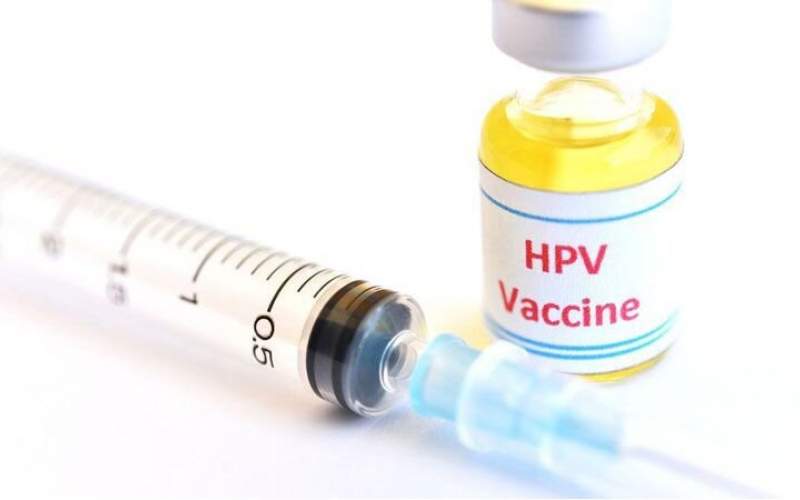The Iran Project
: An Iranian knowledge-based company has announced readiness to meet the needs of regional countries as well as North Africa for the human papillomavirus (HPV) vaccine.
Saturday 13 January 2024 - 21:40
Story Code : 411900
Source : Tehran Times
Iran ready to supply region, North Africa with HPV vaccine
The product has been manufactured at a much lower price, 75 percent cheaper, compared to foreign samples.
Producing the HPV vaccine needs one of the most complicated technologies in the world, and Iran has been able to produce the vaccine domestically.
Passing quality control tests and pre-clinical trials, the clinical trial of the HPV vaccine started in 2019 on healthy volunteers.
Once the vaccine proved its safety and effectiveness in increasing the antibody titer, it obtained the Food and Drug Organization’s approval to enter the market in 2020.
Achievements in cancer treatment
In September 2023, an Iranian knowledge-based company succeeded in producing ‘ibrutinib’ which is used to treat various blood cancers, making the country the third producer of the medication in the world.
Now Iran, India, and China are the only three countries in the world that have the high-tech knowledge to produce ibrutinib and necessary raw material, IRNA reported.
Ibrutinib is a type of targeted therapy called a kinase inhibitor. A kinase is an enzyme that promotes cell growth. There are many types of kinases, which control different phases of cell growth.
This medication interferes with the function of Bruton's tyrosine kinase (BTK), which is found in excess on cancerous B cells. By interfering with BTK, ibrutinib interferes with the growth of the cancerous B cells.
Ibrutinib is highly effective in the treatment of chronic lymphocytic leukemia (CLL), mantle cell lymphoma, and Waldenstrom’s macroglobulinemia.
The biggest advantage of this drug is its end price. A dose of 420 grams of medicine, which is used to produce 28 of this medicine, costs nearly 6,500 euros.
The raw material production for manufacturing this drug in the country is very affordable in terms of strategy, price, and quality.
In August 2023, a group of researchers, led by an Iranian scientist, successfully analyzed the chemical composition of individual human cells.
This method can help with an earlier detection of cancer and a more efficient treatment, according to Mehr News Agency.
The breakthrough, which is considered a milestone in the field of analytical chemistry, enables single-cell biopsies in laboratories. During the research, mass spectrometry and artificial intelligence were used to first measure the chemical molecules or metabolites of a human cell with high precision, and then extract the chemical patterns of different cells from complex spectral data. AI played a significant role during several steps of the research.
The new scientific advancement essentially enables the identification of anti-tumor immune cells as well as tumor enhancers.
Also, researchers were able to measure the chemical content of an immune cell called macrophage and accurately differentiate between tumor-suppressing or tumor-enhancing macrophages. This is the first time that metabolite measurement, or metabolomics, has been performed on an immune cell.
Cancer therapy
On March 17, A cancer treatment center, which is said to be the most advanced of its kind in the region, was officially inaugurated by President Ebrahim Raisi.
Some 12 trillion rials (about $24 million) has been spent on building the center which is specialized for diagnosing and treating stage 3 cancers.
Stage 3 cancer is considered advanced. In this stage, the tumor may have grown to a specific size, cancer may consist of multiple tumors, and/or cancer may have spread to adjacent lymph nodes, organs, or tissue.
In some cases, stage 3 cancers may be considered metastatic cancers, meaning they may have spread beyond their organ of origin.
Many stage 3 cancers have multiple subcategories, usually designated as stages 3A, 3B, and 3C. These subcategories are often determined by the size of the tumors, whether multiple tumors are present, and the degree to which cancer has spread locally.
For the first time in West Asia, some ultra-modern devices such as linear accelerator, CyberKnife, tomotherapy, and CT simulator have been used in this cancer treatment center.
The CyberKnife system is a non-invasive, robotic delivery system for radiation therapy that treats some cancerous and noncancerous tumors and other conditions.
Tomotherapy is a type of therapy in which radiation is aimed at a tumor from many different directions.
The Ministry of Health has launched a plan aimed at preventing the three most common cancers among women, namely breast, colorectal, and cervical cancers, Ali Qanbari-Motlaq, a health ministry official, said in February.
These cancers are the most preventable cancers and at the same time they account for 40 percent of cancers among women and 25 percent of cancers both among men and women, ISNA quoted Qanbari-Motlaq as saying.
The pilot phase of the plan was carried out in 2016 and 2017, he said, adding that in 2018, the development plan of the first phase started.
He pointed out that almost 150,000 people in the country are diagnosed with cancer every year.
With the support of the World Health Organization, the national cancer control program has been developed, which sets out the Ministry of Health’s roadmap up to the Iranian calendar year 1404 (March 2025-March 2026).
The purpose of the program is to reduce cancer prevalence and mortality while improving the quality of patients’ lives, which can serve as a model for other countries, especially in the Eastern Mediterranean region.
The program includes two important documents, namely, “development of national cancer care network” and “development of cancer human resources”, which resulted in the establishment of the early diagnostic centers.
Reporter : Editorial of The Iran Project
# Tags











